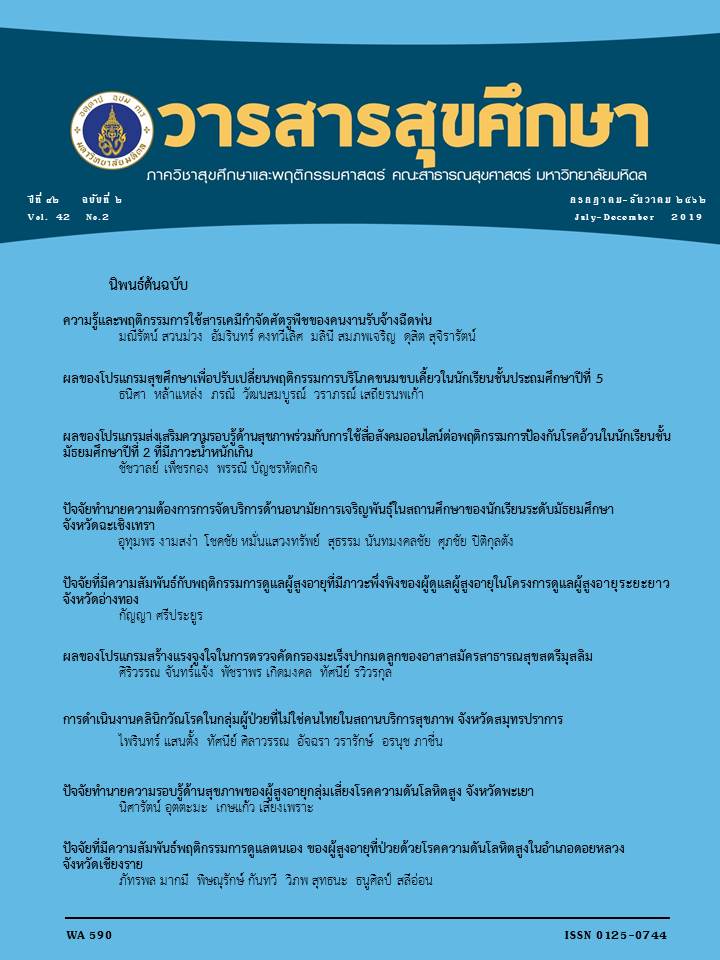The Effects of a Self-Efficacy Application Program on Dental Health Care Behavior Among Older Adults in an Elderly Club, Lablae District, Uttaradit Province
Keywords:
Dental plaque, Self-Efficacy theory, Dental health education program, Older adults, Tooth decayAbstract
The objective of this study was to study the effect of a self-efficacy application program on dental health care behavior among older adults in an elderly club in Laplae district, Uttaradit province. The total sample of 66 people were voluntary recruited and were equally divided into the experimental group and the comparison group. The experimental group received the self-efficacy application program, including teaching by mastery experiences, modeling, verbal persuasion, emotion arousal and home visiting activities. The study period took 12 weeks. Data were collected before and after the experiment by using structured interview, dental behavior observation form and plaque record form. The data were analyzed by using percentage, mean, standard deviation, paired t-test and independent t-test. The statistical significance was set at 0.05.
The results showed that at post-test intervention, the experimental group had an average score of self-efficacy expectation, expectation on the outcome of the practice and dental health care behavior higher than those at pre-test and the comparison group by statistically significant (p <0.001). In addition, at post-test the experimental group had less plaque than that at pre-test examination and less than that of the comparison group (p <0.001). The result of this research shows that the self-efficacy application program on dental health can be applied to the elderly club in order to prevent tooth decay among in older adults.



